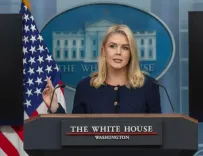Is Online Medicine Procurement the New Lifeline for Healthcare Services?

Synopsis
Key Takeaways
- Enhanced Transparency: Improved processes will ensure accountability in procurement.
- Unified System: A single e-medicine platform will streamline purchasing.
- Quality Assurance: Emphasis on quality in medicine delivery.
- Vacancy Resolution: Urgent filling of doctor positions in rural hospitals.
- Public-Private Partnerships: Collaboration to enhance resources and infrastructure.
Mumbai, July 9 (NationPress) Chief Minister Devendra Fadnavis, who presided over a session of the Maharashtra Medical Goods Procurement Authority, emphasized that enhancing transparency and streamlining the medicine procurement process could completely eliminate medication shortages.
“The Medical Education Department and the Public Health Department should integrate a unified e-medicine system for acquiring medicines, equipment, and medical devices. A two-year fixed-rate contract must be established to guarantee uniform pricing based on quality and timely supply. Annually, 70% of medicine procurement should be standardized. A cohesive plan should be developed, and its proposal submitted,” he mentioned.
Fadnavis urged that all government hospitals must procure and distribute medicines in unison, adhere to a transparent tender process, prioritize quality, implement storage facilities in every district, and enable hospitals to submit requests for essential medicines through an online platform.
“To optimize the availability of doctors in rural hospitals, it is crucial to fill vacant positions without delay. Currently, medicine warehouses are operational in 15 districts, and for the remaining 20 districts, the availability of space in government medical colleges should be assessed, or initiatives to establish medicine warehouses via public-private partnerships (PPP) should be pursued,” he added.
According to him, medicine warehouses or drug depots must be equipped with facilities such as adequate temperature control, cold storage systems, stock management, and quality assurance. He instructed that these warehouses must maintain clean, ventilated, humidity-controlled environments with cold storage, inventory management, and quality control provisions.
“The simultaneous procurement and distribution of medicines in all government hospitals, a transparent tender process, an emphasis on quality, and an online requisition system for necessary medicines should be implemented. Vacancies must be addressed swiftly to ensure maximum doctor availability in rural hospitals,” he stated.
Deputy Chief Minister Ajit Pawar mentioned that medicine production should occur within a month, with a validity period of at least two years. He also stated that funding will be allocated to enhance medical facilities in rural regions.









